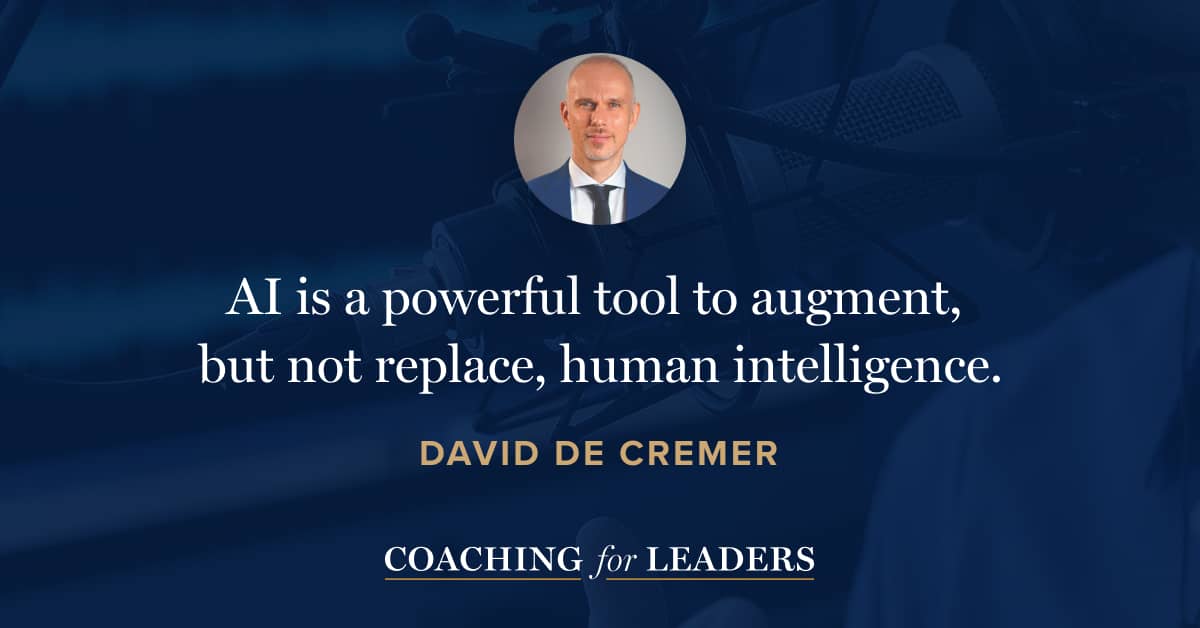David De Cremer: The AI-Savvy Leader
David De Cremer is the Dunton Family Dean of the D'Amore-McKim School of Business and professor of management and technology at Northeastern University. He's also an affiliated faculty member at the Institute for Experiential AI at Northeastern University and an affiliated researcher at the Center for Collective Intelligence at MIT. His newest book is titled The AI-Savvy Leader: Nine Ways to Take Back Control and Make AI Work*.
We’ve all heard the warnings that AI is going to take our jobs. That’s certainly a possibility in the long term, but the story emerging, at least for now, is looking a little different. In this episode, David and I discuss how leaders can use AI to augment, not replace, human intelligence.
Key Points
- AI is substantially different than prior digital transformations, and adoption efforts are failing at alarming rates.
- Instead of leading, too often leaders are being too deferential to data and analytics teams.
- Your expertise is exactly what your organization needs to deploy AI successfully.
- Leaders who learn the fundamentals of AI will play an essential role in narrating dialogue between the technology experts and everyone else.
- Get just enough foundational knowledge with statistics and modeling to communicate with the data and analytics folks better.
Resources Mentioned
- The AI-Savvy Leader: Nine Ways to Take Back Control and Make AI Work* by David De Cremer
Interview Notes
Download my interview notes in PDF format (free membership required).
Related Episodes
- How to Solve the Toughest Problems, with Wendy Smith (episode 612)
- How to Begin Leading Through Continuous Change, with David Rogers (episode 649)
- Principles for Using AI at Work, with Ethan Mollick (episode 674)
Discover More
Activate your free membership for full access to the entire library of interviews since 2011, searchable by topic. To accelerate your learning, uncover more inside Coaching for Leaders Plus.





